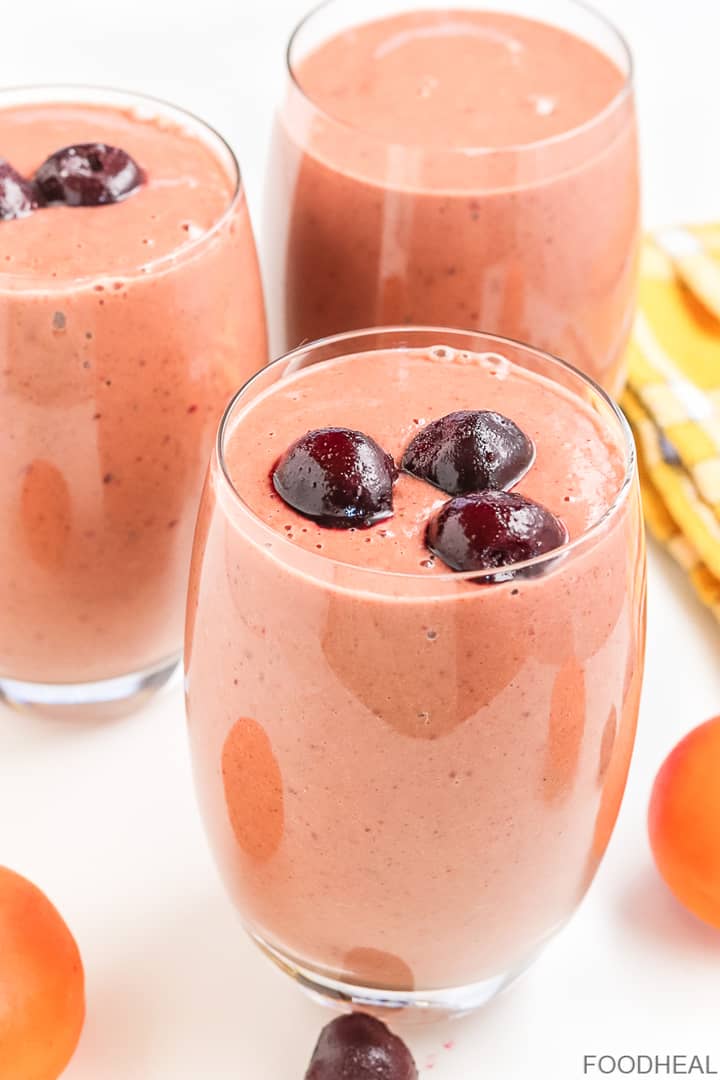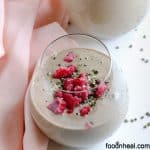Are you tired of trying to decipher the information about food and nutrition on the internet and in the media?
Science is an ever-growing field, with new studies regularly claiming the health benefits or risks of various foods. Sometimes, new research contradicts earlier findings, making it challenging to determine which research to consider.

This post aims to clarify misconceptions about certain foods, helping you make informed, healthy dietary choices.
You want to eat healthy to help your body heal and stay fit. However, some information collected from the internet can be very confusing.
I went through this phase when I was seeking a way to heal, and as a nutrition coach, I am frequently asked questions about food, health, and nutrition.
I am passionate about food science and spend hours researching the impact of food on our health. There are some myths about food and nutrition, and it would be great if I offered you another perspective.
This post is based on research and is intended to be informative.
Here are 11 food myths debunked.
1. Carbs are bad
This myth is mostly speculated by those in the weight loss industry. Carbohydrates (carbs) are sugars naturally contained in plants, and consuming the right carbohydrates is essential for energy. Most people look at specific foods as just carbs.
Of course, white bread, white rice, processed pasta, and French fries, among others, are empty carbohydrates and not good energy sources because they are primarily high in simple sugar and are devoid of healthy nutrients.
Eating the same foods in their natural form (whole grain or potatoes with their skin) will give you nutrients like minerals, vitamins, fiber, and phytonutrients.
Many people are unaware that part of these carbs, such as insoluble fiber, will not be digested by the body and, therefore, do not contribute to energy intake. Consequently, the higher the fiber content, the better.
2. Fresh vegetables are more nutritious than frozen.

The truth of this myth is that it depends.
While freezing fruits and vegetables is an excellent way to preserve foods, it requires that these foods be pre-treated by blanching or pre-boiling, which can deplete some nutrients, especially water-soluble vitamins B and C.
During freezing, the ice breaks the cell walls of vegetables & fruits, leading to loss of nutrients when these foods are thawed.
Cooking frozen vegetables and fruits may lead to a greater loss of nutrients, as these foods often require extra cooking time or necessitate draining excess liquid.
Fresh vegetables are rich in nutrients if consumed quickly. Keep in mind that these nutrients begin to degrade slowly once harvested. Therefore, produce that is transported in a truck for days and then spends additional days in your grocery store or market will have lost most of its nutrients.
However, frozen fruits and vegetables are healthier than cooked foods with added sugar, fat, preservatives, and food coloring.
3. Skipping breakfast helps you lose weight.
There's some truth in this.
If you are looking for a quick-fix solution, skipping breakfast can help you lose weight ONLY if you do not snack or eat more during the day.
Losing weight isn't determined by whether or not you eat breakfast. It's the number of calories (and I must say HEALTHY CALORIES) you consume in a given day that matters.
The best approach would be to understand why you've gained weight in the first place!
Skipping breakfast can affect you if you are busy or your job demands more energy.
4. Fats are bad for you.
Fat got a bad reputation after World War II. With the abundance of food came the rise of health issues like heart disease attributed to fat consumption.
The irony is that even after people went on a fat-free diet, heart disease is still the leading cause of mortality worldwide.
While some scientific evidence suggests that certain fats can cause health issues, the truth is that not all fats are inherently bad.
Your body needs fat to absorb fat-soluble vitamins, regulate body temperature, protect vital organs, make hormones, and form cell membranes.
High consumption of trans fats, saturated fats, and hydrogenated fats can cause health issues, while consuming monounsaturated and polyunsaturated fats in moderation can promote health and reduce the risk of certain diseases.
5. Soy-based foods are harmful to your health.
Let's start by stating that all soy isn't equal, e.g., GMO, conventionally grown soy, and highly processed soy products!
Soybeans and their less-processed products, such as tempeh, natto, and tofu, when consumed as part of a healthy diet, can be beneficial and promote health.
Soy contains a high concentration of isoflavones, a type of plant estrogen (phytoestrogen) that is similar in function to human estrogen but with different effects.
While high levels of human estrogen are related to inflammation and increased risk of breast cancer, plant estrogen has been studied for its protection against cancer.
6. You should avoid all processed foods.

Processing food is changing its whole initial state to something else. However, this doesn't necessarily mean the loss or removal of nutrients.
Not all processed foods are created equal. Turning your veggies and fruits into a smoothie is one way to process them, and it's healthy for you, just as it is with nut butter or plant milk.
However, highly processed foods, such as bakery goods like cakes, biscuits, bread, pizza, pasta, instant oatmeal, white flour, and white rice, are not considered health-promoting foods.
Processed foods typically contain preservatives, some of which, if consumed regularly, can lead to adverse health effects. Here is a list of chemicals added to processed foods:
- Sweeteners (High corn syrup, sugar, artificial sweeteners, such as aspartame, saccharine, and sodium cyclamate)
- Food coloring
- Flavor enhancers (monosodium glutamate)
- Preservatives (sodium, oils, nitrites, sulfites, or benzoates, nitrates, BHA, BHT, sodium benzoate, benzoic acid)
7. Multigrain and whole grains are the same.
Some people are confused by the term' multigrain'. Multigrain is a mixture of several grains, whole or processed, that have been mixed.
For some people, whole grain may refer to a grain that has not been cut into pieces, such as whole rice grains or steel-cut oats.
Whole grain means that the grains haven't gone through any other process apart from the removal of the outer husk, which is indigestible.
Whole grains contain all their nutrients, but processed grains have almost no nutrients and are high in carbs.
8. Eggs are the healthiest foods.
Everyone on the internet is promoting eggs! Some people, including famous doctors, claim to eat a dozen eggs per week.
Numerous scientific studies have highlighted the risks associated with consuming more than one egg per day, and it's not just about cholesterol.
I've written an ebook about eggs and the reasons you should reduce their consumption. Get yourself a copy here.
9. A gluten-free diet is only for celiac disease.

Gluten is a protein found in grains like wheat, barley, and rye. There is a misconception that some people cannot digest gluten.
The fact is, no human being has the enzyme necessary to digest gluten completely! However, people with gluten sensitivity or celiac disease get inflamed when they consume gluten.
People with inflammatory diseases, autoimmune disorders, and gastrointestinal problems such as leaky gut and IBS can find relief through a gluten-free diet, as gliadin, a protein molecule in gluten, increases zonulin.
Zonulin is a protein that regulates the small intestinal wall (barrier). Increased zonulin is associated with gut permeability, commonly referred to as a "leaky gut," which allows food particles to enter the bloodstream, leading to inflammation due to an immune reaction.
Gluten is now associated with various other diseases, including some neurodegenerative disorders.
For healthy individuals, the increase in zonulin is tightly controlled, and its level returns to normal within a short period. However, the frequency of consuming gluten products may cause harm in the long term if you've genetic predispositions to certain diseases.
10. You can eat anything you want at any time.
We primarily eat food to get energy. Therefore, you can eat food at any time when you are hungry. However, eating anything at any time can have undesired outcomes.
Eating high-calorie foods before bedtime can impact your sleep quality, which in turn affects how you feel the following day, influencing your thoughts and moods.
When the evening falls, your body's hormones change; melatonin (a sleeping hormone) increases while cortisol decreases. High levels of melatonin affect glucose control due to the reduction in insulin.
Taking breakfast (mainly highly processed) immediately after waking up can cause your insulin levels to spike because when you wake up, your cortisol levels are high, and cortisol inhibits digestion, which can result in weight gain.
Eating continuously can affect both your blood glucose levels and your gut microbiome.
Are you fighting an inflammatory disease like diabetes or RA, and do you want to lose weight forever? Consider joining the FOODHEAL WELLNESS PROGRAM.
11. You can't get enough protein from plants.

If we look at the ocean and the sea, there isn't much diversity of plants to be found there. However, the fish we consume consume small fish and crustaceans, which, in turn, only have plants, such as microalgae and algae, for food.
Regular consumption of whole grains, beans, legumes, vegetables, and nuts will provide you with the necessary amount of protein for the day. We need 9 essential amino acids that should be obtained from our diet. However, while most grains, legumes, nuts, and seeds contain higher amounts of protein, the distribution of the amino acids varies.
Interestingly, many people believe that green vegetables do not contain protein. All plants contain proteins, which are composed of 20 amino acids; the only difference is that some have a higher amount, while others have just moderate amounts.
Quinoa, amaranth, buckwheat, and soy are plants with 9 essential amino acids, if you really want to maximize your protein intake.
This information will help you make healthy choices for yourself and your family.


















Comments
No Comments